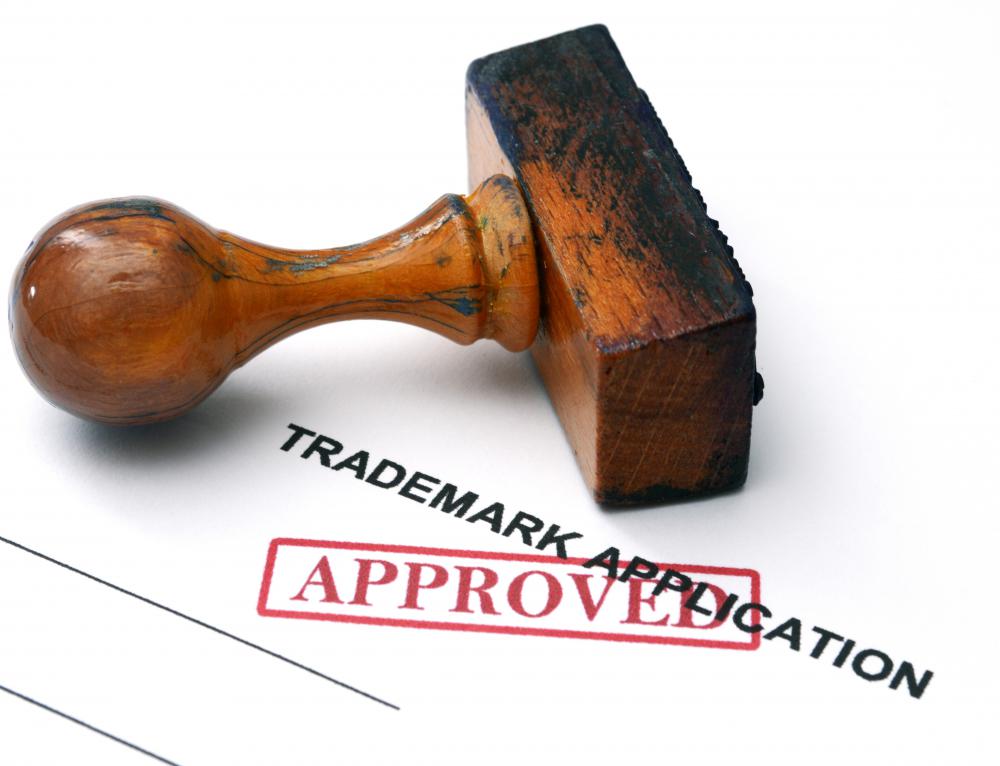At WiseGEEK, we're committed to delivering accurate, trustworthy information. Our expert-authored content is rigorously fact-checked and sourced from credible authorities. Discover how we uphold the highest standards in providing you with reliable knowledge.
What is a Federal Trademark?
A federal trademark is a trademark that has been registered with and approved by the United States Patent and Trademark Office. The term “trademark” applies to any word, phrase, symbol or image that is used to designate a certain brand, or to signal the origin of goods or services. In the United States, a trademark does not have to be registered to be valid. A trademark exists under U.S. law as a “common law” trademark from the moment it is used in commerce. Registration is the only way to create a federal trademark, however, and registration carries with it a unique set of benefits.
The function of a trademark is to set a brand apart: it identifies the origin or source of something. Protecting trademarks is an important way that businesses maintain their image and ensure that consumers receive only genuine goods. U.S. law, along with the laws of most other countries, sets out special protections for trademarks. The highest protections come with registration, and in the U.S., it is registration that creates a federal trademark.

Registration begins with an application to the Patent and Trademark Office (PTO) that describes the trademark, how and where it will be used, and how long it has already been used, if at all. A PTO trademark agent will review the application against other existing trademarks, and publish it for public review. If no legitimate objections arise, the PTO will grant the registration and award a federal trademark.
One of the biggest advantages of a federal trademark is the presumption it carries of national enforceability. All federal trademarks are recorded in a publicly searchable database at the PTO, which serves as notice to all other parties that the mark is in use and is protected. Federal trademarks are also the only trademarks that are allowed to use the designation ®. The ™ symbol can attach to any word or phrase that is used as a trademark, but ® is reserved for those marks actually on register with the PTO.
Federal registration also gives a trademark owner the ability to file an infringement lawsuit in federal court. In the United States, trademark law is a national, not a state, law, and trademark infringement actions are rarely successful at the state court level. Based on registration, the owner of a federal trademark has standing to bring a federal lawsuit for infringement if he believes someone else is using his trademark.
Trademarks, like all intellectual property rights, are only as strong as the national law. A trademark protected in the United States is not automatically protected abroad. Most countries require some proof of eligibility at home before they will grant foreign trademarks protection, and a federal trademark can act as that proof for U.S.-based trademarks. Federal registration in the U.S. does not guarantee registration abroad, but it can enable it, which can add still another arrow to a trademark owner’s enforcement quiver.
AS FEATURED ON:
AS FEATURED ON:











Discuss this Article
Post your comments